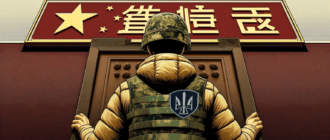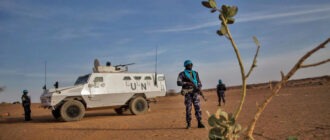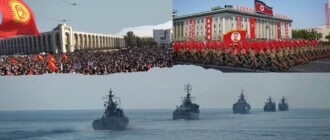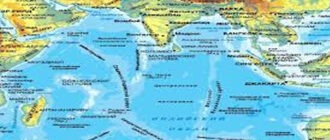In Almaty, which didn’t lose its status of a capital even after the administrative capital of Kazakhstan has officially been moved to the city of Astana-Nursultan, there is such a word, used by locals – the mambets. The word is commonly referred to as semi-destitute, undereducated citizens of Kazakhstan, who have lost touch with the pastoralist traditions and rushed to the big cities in search of happiness – meaning to find a job for sustenance and survival. Something like the Ukrainian version of rednecks, but really deprived and marginalized. And this is the real future for the Ukrainian “rednecks” after the Ukrainian agricultural lands have been sold.
For many years there has been a social contract between the Kazakhstan authorities and the mambets – cheap vodka and food, as well as the fuel (liquefied gas), — what kind of a Kazakh are you if you don’t have a horse, even the iron one! Having raised the fuel prices, and, respectively, prices for food and literally everything, the authorities breached the contract. A lot of families that have been balancing on the edge of poverty found themselves living on the threshold of it with the real risk of falling into poverty. The important thing to understand here, is that the Kazakhstan elites are not only too far from people, — they barely have any contacts with the people at all. Several hundred clans, not only the national, Kazakh, but also the soviet clans that formed not only due to the USSR’s national policy, but also because of several waves of multiethnic emigration to Kazakhstan that had occurred in XIX-XX – Cossacks (the historical name of Almaty is Vernyi), businesses of the Russian Empire, the fled from the Bolshevik October revolution and the subsequent repressions, the Stalin repressions themselves, the evacuated during the World War II, Komsomol construction projects etc. – are all constituting the economic, power, and cultural elites of Kazakhstan, who have long ago forgotten the traditional mindsets of the three zhuzhes, and who are connected with the Kazakh people only through a decorative picture.
Unlike Ukraine, the Kazakh protests have neither intellectual, nor ideological leaders. They merely take no interest in a popular unrest, they’d rather prefer talking about a global conspiracy against Kazakhstan or even Russia, as well as about a struggle between the presidents. Maybe, they know it best from the inside. However, the footage of Kazakhstan protests for some reason is more associated with the American BLM rather than with the “color revolutions” in Georgia, Kirgizia and Ukraine. The popular masses looked way too poor and deprived and morbid as they took to the streets where nobody’s waiting for them and there’s nothing they could really afford. And now here they are storming the stores and boutiques in order to make a statement that they also have their rights and their lives matter. Although, they are still the mambets.






